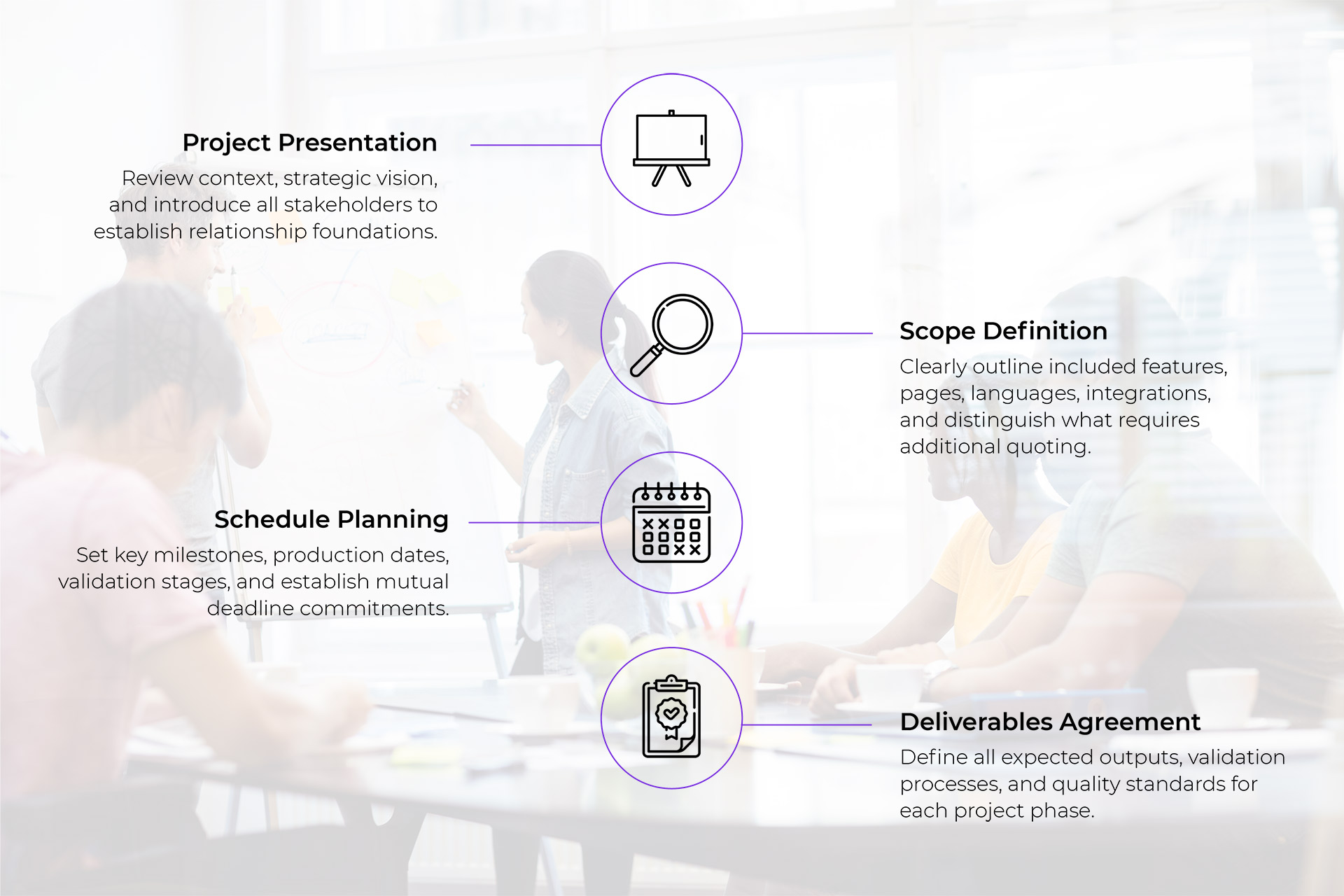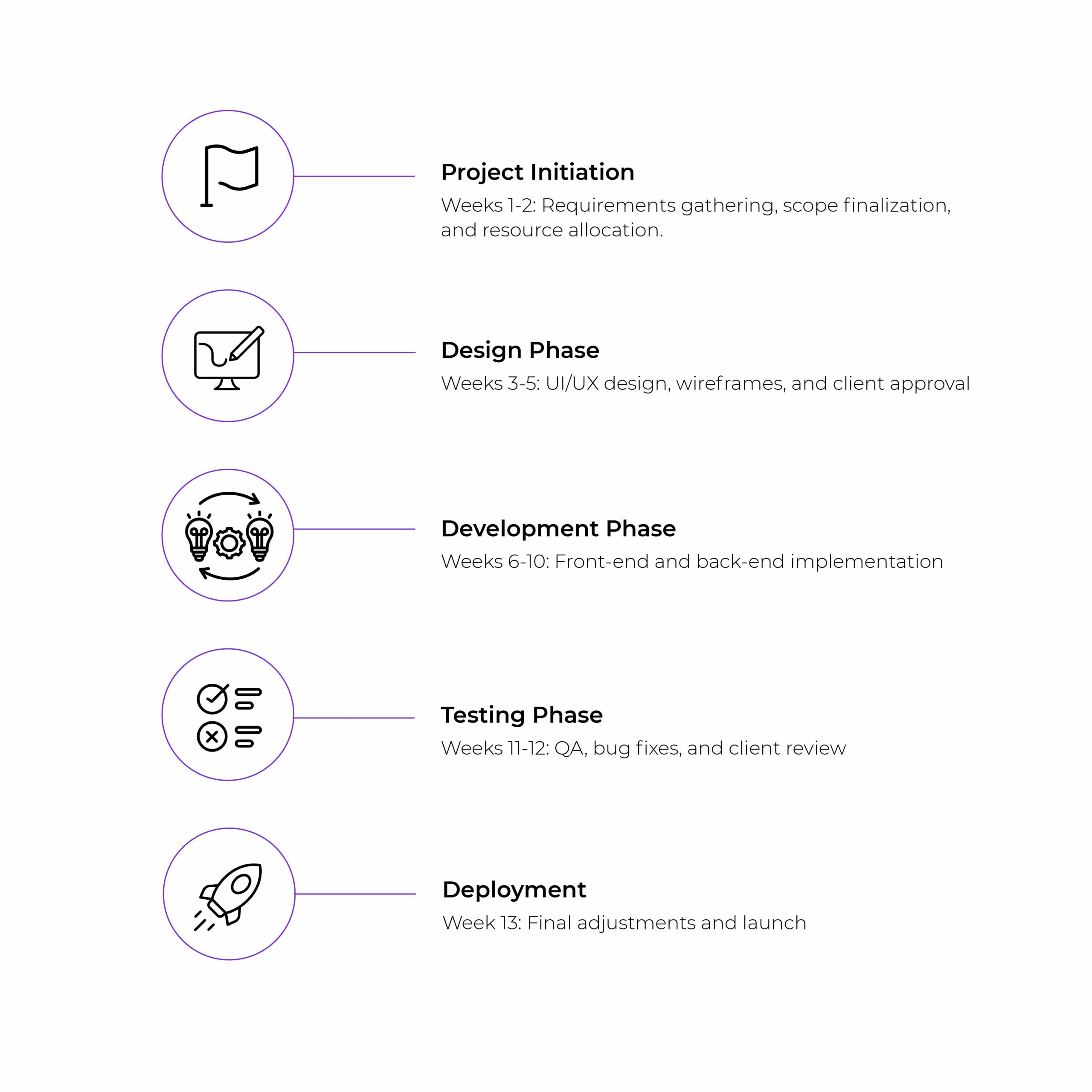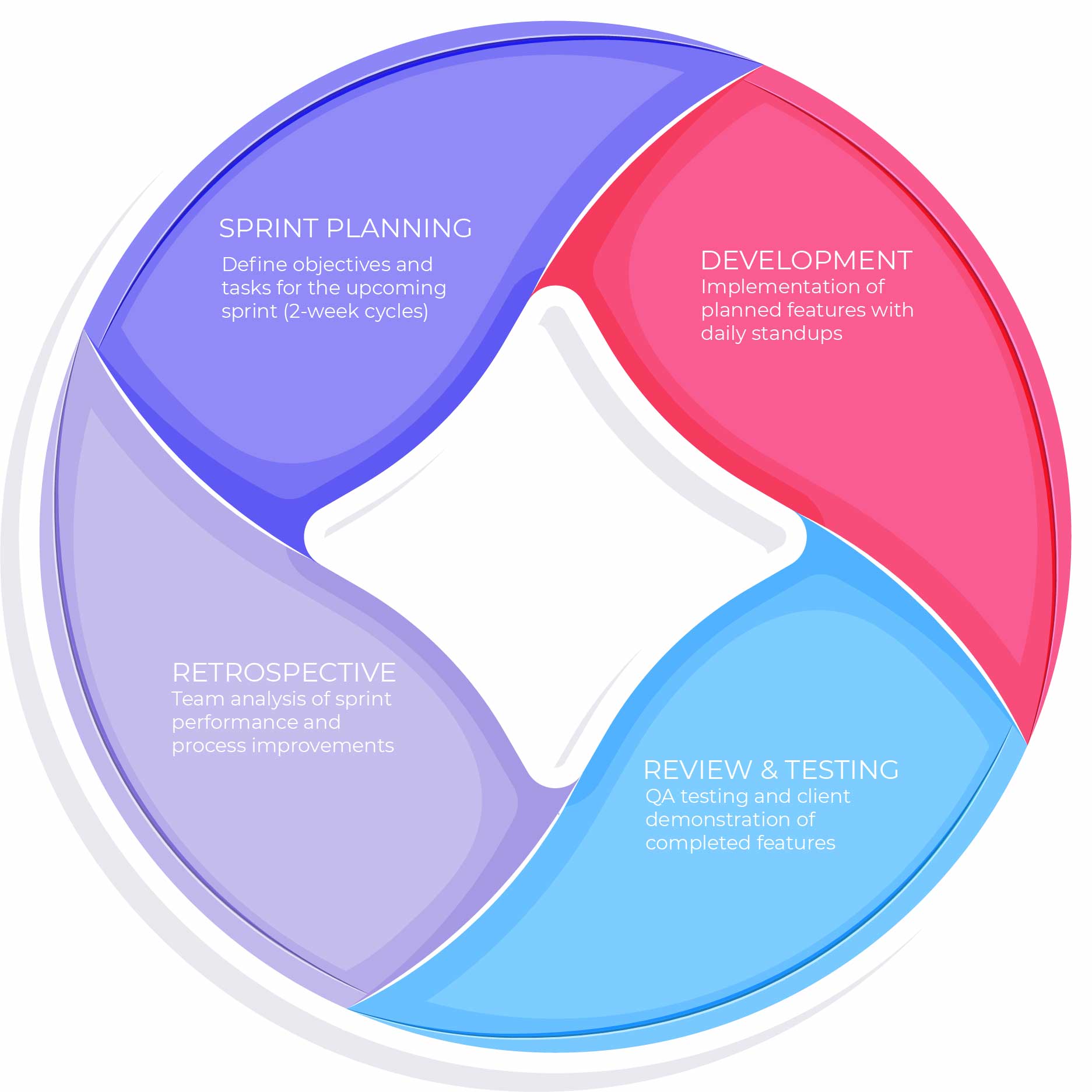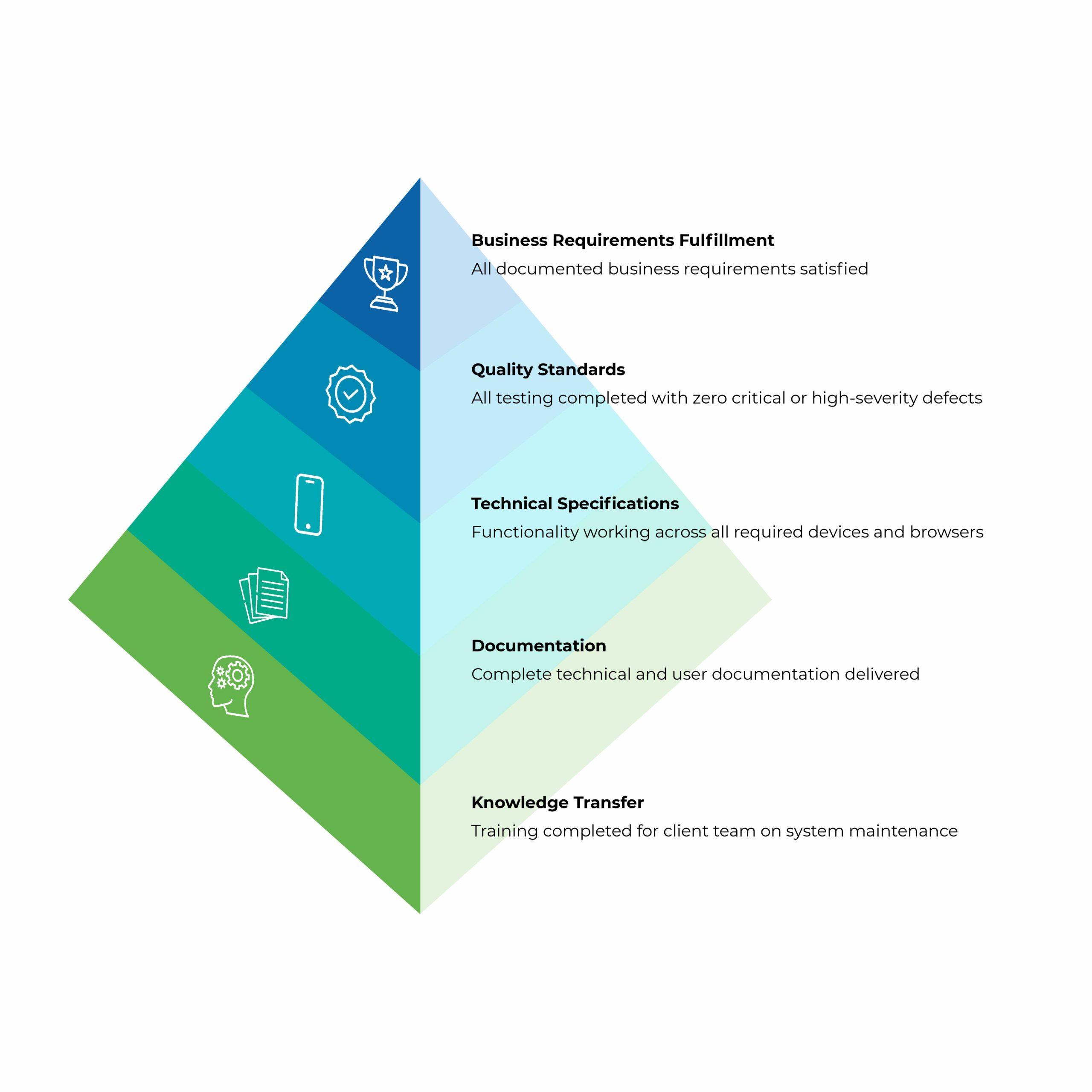Professional Web Development Project Kickoff Process Cambodia | Strategic Planning & Management Services
by INARI IT Phnom Penh
Professional web development project kickoff Cambodia services are transforming how businesses approach digital transformation. Whether you’re a startup in Phnom Penh or an established enterprise in Siem Reap, the success of your web development project depends entirely on how well it’s planned and executed from day one.
INARI IT’s comprehensive web development project management eliminates the chaos that destroys 67% of web projects in Cambodia. Our structured kickoff process has helped over 47 Cambodian businesses launch successful websites, e-commerce platforms, and digital solutions that drive real results.
Don’t let your web development project become another statistic. Our strategic project kickoff services start at just $299 and can save you thousands in development costs, months of delays, and the frustration of misaligned expectations.

Why Your Web Project Needs a Proper Kickoff
Strategic Foundation
A website isn’t just design and code—it’s the manifestation of your business strategy and vision. Our kickoff aligns all elements before development begins.
Risk Mitigation
Prevent common pitfalls like delays, budget overruns, and misaligned expectations by establishing clear parameters from the start.
Stakeholder Alignment
Bring together client, consultant, designer, and developer to create a shared understanding of goals, timelines, and responsibilities.

The Kickoff meeting framework

Project Scope Definition
Clearly defining the project scope is crucial to prevent misunderstandings and scope creep throughout the project lifecycle. The scope definition must explicitly outline both what is included and excluded from the project deliverables.
Included in Scope:
– Specific web pages to be developed or modified
– Language versions required (translation processes and responsibilities)
– Technical specifications and features
– Responsive design requirements
– Integration points with existing systems
– Performance requirements and standards
Excluded from Scope:
– Features or functionality explicitly not covered
– Content creation responsibilities outside the team’s purview
– Ongoing maintenance beyond the project timeframe
– Optional features that would require additional budget
Documented Agreement
The finalized scope must be documented and signed off by all stakeholders to serve as a reference point throughout the project.
Change Management
Any requested changes to the scope after kickoff must follow a formal change request process with impact assessment.
Verification Process
Regular scope reviews should be scheduled to ensure the project remains aligned with the original scope definition.
The project scope document will serve as the foundational reference for all project activities and decision-making. It’s essential that all team members understand and internalize this document to maintain focus on delivering exactly what has been agreed upon, avoiding feature creep and unnecessary complications.
Team Introduction and Responsibilities
A clear understanding of team composition and individual responsibilities is essential for effective collaboration throughout the project. This section introduces all key stakeholders and defines their roles within the Cambodia project.
Vendor Team
– Project Manager: Primary point of contact, responsible for overall project delivery, timeline management, and client communication
– Technical Lead: Oversees all technical aspects, architecture decisions, and quality assurance
– Developers: Responsible for coding, implementation, and technical problem-solving
– Designers: Create visual elements, user interfaces, and ensure brand consistency
– QA Specialists: Test functionality, identify bugs, and verify that deliverables meet requirements
Client Team
– Project Sponsor: Executive-level stakeholder who authorizes resources and makes final decisions
– Project Lead: Day-to-day client representative responsible for providing requirements and feedback
– Subject Matter Experts: Provide domain knowledge and validate that solutions meet business needs
– Technical Contacts: Client-side IT staff who assist with integration and technical requirements
– Content Owners: Responsible for providing and approving content for the project
RACI Matrix

R: Responsible, A: Accountable, C: Consulted, I: Informed
Each team member should understand not only their individual responsibilities but also how their role connects with others. During the kickoff meeting, team members should introduce themselves, briefly describe their expertise, and explain how they will contribute to the project’s success. This promotes team cohesion and establishes clear lines of accountability from the project’s inception.
Communication strategy
Effective communication is the cornerstone of successful project execution. This section outlines the communication framework for the Cambodia project, detailing channels, frequency, and protocols to ensure information flows efficiently among all stakeholders.
Documented Agreement
– For urgent matters requiring immediate attention
– Quick status updates and clarifications
– Team chat group for informal daily communication
telegram
– For sharing documents and larger files
– Creating topic-specific channels for different workstreams
– Announcements that need to reach the entire team
– For formal communications that need documentation
– Detailed requirements and specifications
– Meeting invitations and official approvals
– Communication with external stakeholders
All team members must commit to timely, clear, and emotionally neutral communication, especially when addressing challenges. Meeting minutes should be distributed within 24 hours of each meeting, and all important decisions must be documented in writing. By establishing these communication norms at kickoff, we create a foundation for efficient collaboration throughout the project lifecycle.
Project Timeline and Task Allocation
A well-structured timeline with clearly assigned responsibilities is essential for tracking progress and ensuring timely delivery. This section outlines the overall project schedule, key milestones, and individual task allocations for the Cambodia project.

The project timeline must be reviewed and approved by all stakeholders during the kickoff meeting. Any concerns about deadlines or resource constraints should be raised immediately. The timeline will be revisited during weekly steering committee meetings to track progress, identify potential delays, and implement corrective measures when necessary. This proactive approach to timeline management helps ensure the project stays on track to meet its target launch date.
Deliverables, Resources, and Methodology
Expected Deliverables
Clearly defined deliverables set expectations and provide concrete markers for project progress. For the Cambodia project, the following deliverables are required:
– Design Assets: Wireframes, mockups, UI kit, style guide, and responsive designs for all screen sizes
– Content Elements: Finalized text in all required languages, optimized images, videos, and other media assets
– Technical Components: Source code, compiled applications, documentation, API specifications, and integration guides
– Access Credentials: Server access, CMS logins, database credentials, and other necessary access information
– Final Deliverable: Complete, tested, and approved web application ready for public use
Each deliverable must meet predefined quality standards and be provided in the appropriate format. Acceptance criteria should be established for all deliverables during the kickoff meeting
Required Resources
For successful project execution, the following resources must be provided by the respective teams:
Client-Provided Resources:
– Brand guidelines and assets
– Content (text, images, videos)
– FTP/server access credentials
– Third-party service accounts
– Licensed fonts and premium plugins
Vendor-Provided Resources:
– Development environment
– Testing infrastructure
– Project management tools
– Design software licenses
– Technical expertise and tools
Resource requirements should be documented with specific deadlines to ensure availability when needed. Any delays in resource provision should be communicated promptly to adjust the project timeline accordingly.
Agile Methodology Implementation

The Cambodia project will follow Agile methodology, delivering incremental value through iterative development cycles. This approach allows for regular client feedback, adaptation to changing requirements, and early identification of potential issues. During each sprint, the team will focus on completing a set of predefined user stories or features, which will be demonstrated to the client at the end of the sprint. This iterative approach ensures that the project remains aligned with client expectations throughout the development process and allows for course corrections when necessary.
The kickoff meeting should include a detailed discussion of the Agile process, including sprint duration, meeting schedules (daily standups, sprint planning, retrospectives), and client involvement expectations. Clear agreement on these methodological aspects will ensure smooth project execution and effective collaboration between all stakeholders.
Payment Terms and Risk Management
Payment Structure and Milestones
A transparent payment schedule tied to project milestones ensures fair compensation for work completed while maintaining financial predictability for both parties.
Invoices will be issued upon reaching each milestone, with payment due within 15 business days. Any disputed charges must be reported within 5 business days of invoice receipt, with specific details of the concerns. Undisputed portions of invoices should be paid according to the standard payment terms while disputed items are resolved.
Risk Management Framework
Proactive identification and mitigation of potential risks are essential for project success. The following risk management approach will be implemented for the Cambodia project:
Risk Identification
Continuous process of identifying potential issues that could impact project delivery, quality, or budget throughout the project lifecycle
Risk Assessment
Evaluation of each identified risk based on probability of occurrence and potential impact, with prioritization of high-impact risks
Mitigation Planning
Development of specific strategies to prevent high-priority risks or minimize their impact if they occur
Monitoring
Regular review of risk status and effectiveness of mitigation strategies during steering committee meetings.
During the kickoff meeting, all stakeholders should contribute to risk identification and mitigation planning. This collaborative approach ensures comprehensive risk coverage and builds shared ownership of risk management. The risk register will be a living document, updated throughout the project as new risks emerge or existing risks change in probability or impact.
Project Governance and Acceptance Criteria
Steering Committee Structur
Effective governance is critical for maintaining project oversight, making timely decisions, and ensuring alignment with business objectives. The Cambodia project will implement a formal steering committee structure with regular checkpoints to monitor progress and address emerging issues
Weekly Cadence
Regular meetings held every Monday at 10:00 AM Cambodia time (GMT+7) to ensure consistent oversight throughout the project lifecycle
Core Attendance
Required participants include Project Managers from both client and vendor sides, Technical Lead, and key stakeholders with decision-making authority.
Structured Agenda
Standardized format covering progress updates, upcoming milestones, blockers, decisions required, and risk review.
Documentation
Detailed minutes and action items distributed within 24 hours of each meeting, with explicit ownership and deadlines.
The steering committee serves as the primary decision-making body for the project, with authority to approve changes to scope, timeline, or budget within predefined thresholds. Issues that cannot be resolved at the steering committee level will be escalated to executive sponsors according to an established escalation path.
Final Acceptance Criteria
Clear acceptance criteria provide objective standards for evaluating project success and determining when the project is ready for final delivery. The following criteria must be met for the Cambodia project to be considered complete:

Let’s Talk! If you’re ready to stop wasting money on ineffective marketing and start reaching new customers, I’d love to schedule a meeting with you. Let’s explore how we can enhance your online presence and grow your business together.
Reply to this email or call me directly at 016 733 661 to get started.
Looking forward to connecting with you soon!
Best regards, Phalla INARI IT Cambodia Phalla@inari-it.com | 016 733 661


0 Comments